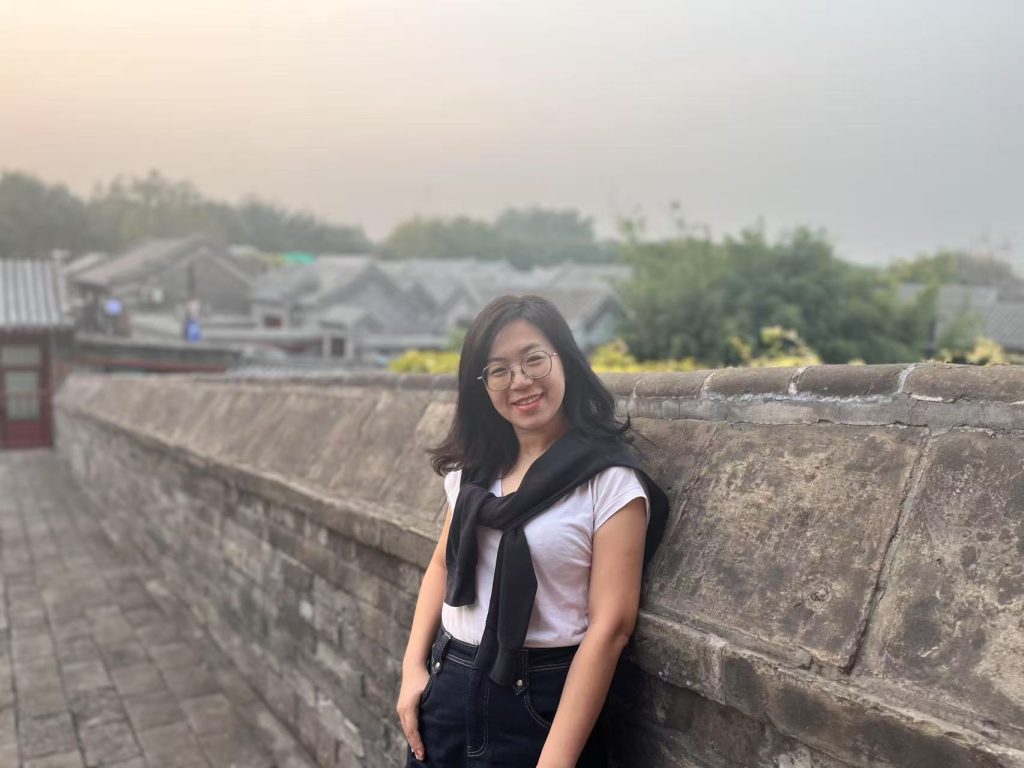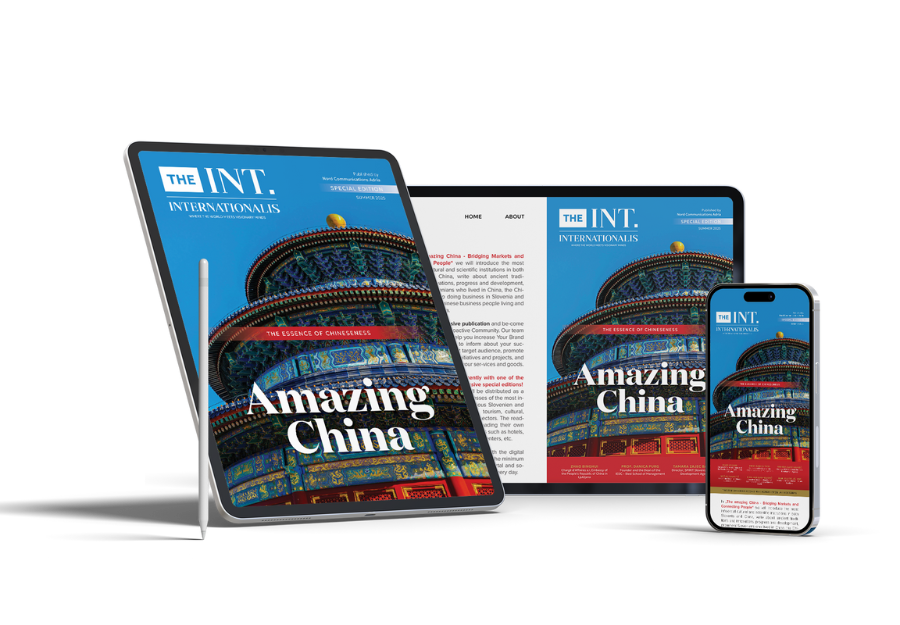Peoples & Places | China - People Exchange

Made in China, Thriving in Slovenia, a Hybrid Identity Bridging Cultures and Business
Zhonghui Ding
Assistant Professor of International Business at the School of Economics and Business, University of Ljubljana
Zhonghui Ding
Assistant Professor of International Business at the School of Economics and Business, University of Ljubljana
PR, Communications, and Event Management Expert
20+ years of experience in PR and Communications
She earned her PhD in International Business from the same institution in 2022 and has been actively involved in teaching and research since 2018.
Her teaching spans undergraduate and graduate English-track programs, including courses such as International Business, How to Do Business with China, and Business with Central Asia.
Her interdisciplinary research bridges international marketing, consumer behavior, and language in business, with a regional focus on Central and Eastern Europe, East Asia, and Central Asia.
She has published in high-impact journals such as the Journal of Business Research, European Journal of International Management, and Journal of East European Management Studies.
She has also contributed to academic books and led the development of a textbook on tourism Chinese.

Click here to listen to the text
It was the Summer of 2010 when I first set foot in Slovenia. That trip marked not only my first time in Europe but also my first long-distance flight.
I still vividly remember the mix of excitement and nervousness as we boarded the plane—three months abroad in a country with LOVE in its name. It felt like the beginning of something extraordinary.
I got my Slovenian name Štefka from my students, but also friends. I guess I am still, so far the youngest and very rare Štefka in Slovenia.
Two years later, when an opportunity arose to work at the Confucius Institute in Ljubljana as a Chinese language teacher, I didn’t hesitate. I didn’t even consult my family—I just applied.
Through years of daily interactions with Slovenian colleagues, students, and friends, I gained a deep understanding and insights into the local culture.
People often ask me, “Do you notice any differences between Chinese and Slovenians?” My usual jokes with the obvious: “Yes, we look different—you’re white, and I’m yellow.” But beyond appearances, I believe our cultures share many commonalities in deep values.
Both cultures cherish family, friendship, hard work, peace, and cooperation. The differences lie more in how these values are expressed. I often use the iceberg metaphor to explain this: the visible part of the iceberg—our language, customs, and behaviors—may appear different.
But beneath the surface, in the larger, unseen portion, our core values are remarkably aligned. Over time, these shared values have helped me feel more connected and integrated, even as I continue to navigate life between two cultures.
Over time, I’ve embraced Slovenian culture so fully that many things now feel natural to me. Still, I remain visibly different. Children sometimes stare, and when people forget my name, they refer to me as “that Chinese lady” or “Chinese Štefka.” Interestingly, when I return to China each year, I blend in completely.
I look like everyone else, and I feel at ease speaking the language and navigating the culture. It’s like a fish returning to water. But after COVID-19, I didn’t return for over three years. When I finally spent three months in Beijing for research mobility, I noticed something had changed. While I still felt comfortable, I also felt like an outsider- like I was observing the city from a distance.

My roots are there, but my sense of belonging has shifted. That strange feeling led me to reflect on my identity. I had been self-questioning for days, and weeks. At the end, I came up with a quantified answer: I see myself as 50% Chinese, grounded in my cultural roots; 30% Slovenian, shaped by the values I’ve absorbed; and 20% cosmopolitan, as I am open to the world and could be adaptable to new environments quickly. I don’t agree with the idea that migrants exist in a state of limbo, belonging nowhere. I believe we belong wherever we choose to accept ourselves.
My academic journey began with a degree in linguistics, specializing in teaching Chinese as a second language. I later pursued a master’s and PhD in International Business.
Currently, I work at the School of Economics and Business at the University of Ljubljana. My goal is to bridge the Slovenian and Chinese business communities, utilizing my cross-cultural expertise.
Through our course How to Do Business with China, we collaborate closely with Slovenian companies, who want to enter the Chinese market, helping them conduct market research and develop entry strategies. We also have a course on Doing Business with Central Asia, a region full of untapped potential—especially relevant in today’s era of deglobalization and geopolitical shifts.
Beyond these region-specific courses, our broader International Business curriculum includes partnerships with companies across various industries, allowing students to apply their knowledge in real-world settings and helping businesses navigate the complexities of global markets.
In addition to my academic and business pursuits, my friends and I are actively promoting Slovenian higher education to Chinese students through social media platforms such as Rednote. Our goal is to bridge the information gap and introduce the hidden gem that is Slovenia to a wider audience.
We hope to inspire more Chinese students to consider Slovenia as a study-abroad destination, offering them not just academic opportunities but also a chance to experience a rich, welcoming culture in the heart of Europe.
Looking back, I believe my journey has been one of transformation—yet still evolving—as a hybrid “cross-culture product,” shaped by the richness of two worlds and open to many more.
Living between China and Slovenia has not only broadened my worldview but also deepened my understanding of how culture influences communication, collaboration, and business.
I hope to continue building bridges through academic programs, business consulting, or educational outreach so as to foster mutual understanding and sustainable partnerships between Slovenia, China, and beyond.


Get news before anyone else!
This audio recording was generated using AI technology. While every effort has been made to ensure clarity and accuracy, please note that the pronunciation of non-English words—particularly Chinese—may not always be correct. We appreciate your understanding and acknowledge that any mispronunciations are unintentional. Internationalis Media is not responsible for potential inaccuracies in AI-generated speech.